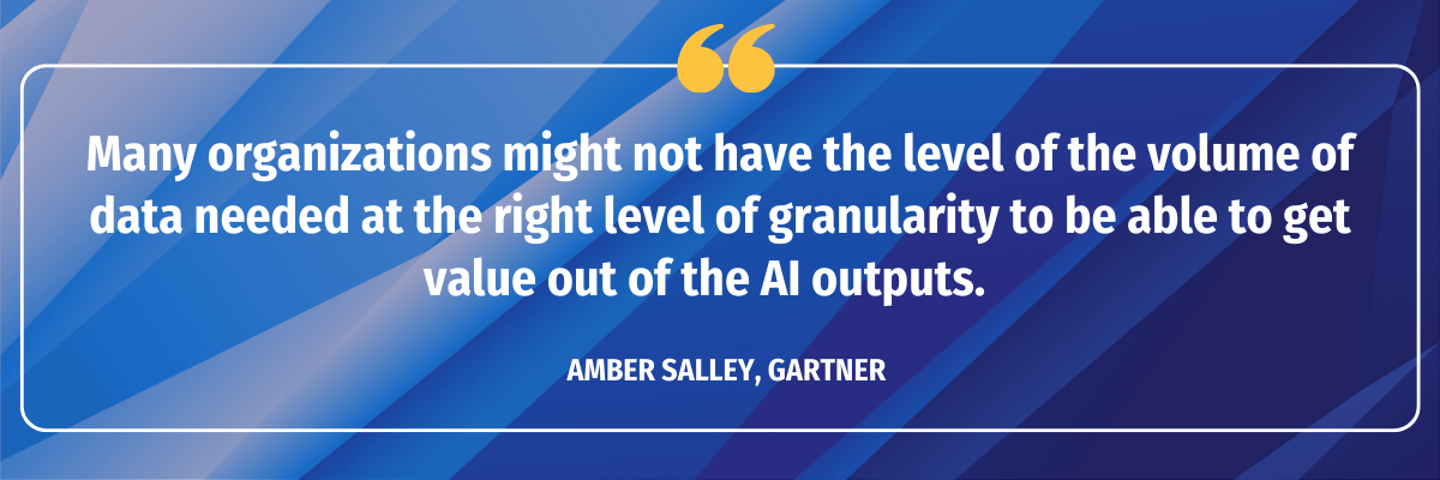What are the Applications of AI in Logistics and Supply Chain?
AI in the supply chain isn’t magic, but it can be an extremely powerful tool for an SCM team. Thanks to its ability to quickly gather massive amounts of data from different sources and swiftly analyze it to provide insights, AI can make itself a convenient companion with a variety of activities.
What are the applications of AI in SCM?
For the consumer goods industry, some of the most frequent examples of AI in supply chain and logistics use cases include:
Demand forecasting: Artificial intelligence can leverage historical data, as well as real-time data from third-party sources, to help retailers and manufacturers predict how many and what types of products their consumers and retail partners will want to buy based on a confluence of environmental, economic, social, and other external factors.
Inventory planning and inventory optimization: Similarly, AI can be used to predict and optimize the entire inventory management process to prevent out-of-stocks and reduce markdowns caused by excess goods.
Customer service: Chatbots can not only help efficiently resolve issues, but they can also identify trends in common problems to help companies be more proactive in solving them.
Sourcing: By quickly analyzing supplier information, consumer goods manufacturers can proactively identify the ideal supplier to secure their raw materials.
Equipment maintenance: Artificial intelligence can predict when factory equipment has a likelihood to fail, as well as provide insight into when it’s not being properly utilized. This in turn can also help companies advance their sustainability goals by reducing energy usage.
Amber Salley, senior director analyst at Gartner, tells CGT they’re seeing artificial intelligence used for helping with clustering and analysis within supply chain planning, as well as identifying patterns of items as they flow through the supply planning process, which can then influence segmentation strategies.
The research firm is also seeing more uses from the vendor side in using machine learning to help with data quality support, she says, such as identifying anomalies in data and helping to identify the best data to correct any incorrect data in an environment.
How AI is used in logistics
The benefits of AI in supply chain mean consumer goods companies can optimize their route planning and warehouse fulfillment operations. In doing so, companies can decrease their emissions to advance their sustainability goals, as well as reduce labor costs and improve customer service levels.
Nineteen percent of consumer goods executives in the 2023 Retail and Consumer Goods Analytics Study said logistics optimization was one of their top AI/ML use cases. Retailers were less likely to report using it at this time, with just 10% citing it as a top use case.
What are the challenges of artificial intelligence in supply chain management?
One of the challenges of using AI in supply chain management is simply the data, especially when it comes to machine learning. Machine learning requires a large volume of data in order to have the number of observations required to identify patterns,
“Many organizations might not have the level of the volume of data needed at the right level of granularity to be able to get value out of the AI outputs,” Amber Salley, senior director analyst at Gartner, tells CGT.
Similar to other new technologies, employee skill sets and mindsets can also be barriers to progress. Companies may need to take steps to get “them to rethink what the supply chain will be with the use of AI to enable more automation,” Salley says. This may mean not only identifying the necessary skill sets for using AI, but also upskilling employees.
What’s more, the use of AI carries a host of ethical and security concerns, including the potential for bias and misuse of information When leveraging artificial intelligence, organizations will need to ensure they’ve developed a responsible AI strategy.
What companies use AI for supply chain?
There are many companies using AI in supply chain. A few examples include:
Kimberly-Clark: The company deployed artificial intelligence across all of its North American operations in order to decrease “order bunching,” which is when order loads stack up on certain days of the week. Order bunching can negatively impact on-time delivery, labor, and other factors, so Kimberly-Clark sought to automate its distribution planning and deployment process.
As part of this, it connected disparate systems and received easier-to-execute recommendations, and received greater visibility into where it was underutilizing the cubic intensity of its trailers. At the same time, its distribution and customer service teams were able to be more proactive. All told, the investment helped Kimberly-Clark decrease variability daily by 40%, particularly in locations where production plants are shipping to its distribution centers.
When combined with the necessary process improvements to unlock the value of the AI platform, Scott DeGroot, Kimberly-Clark's VP of global logistics, says the company has substantially improved on-time delivery and customer service performance and reduced North American distribution costs by several million dollars.
Tyson Foods: The food manufacturer has invested in Soft Robotics, a supply chain AI startup that seeks to ease labor shortages in food processing environments with its robotic picking solutions. The bots use AI, 3D vision, and a patented soft grasping technology to achieve hand-eye coordination meant to reach the same level as humans.



